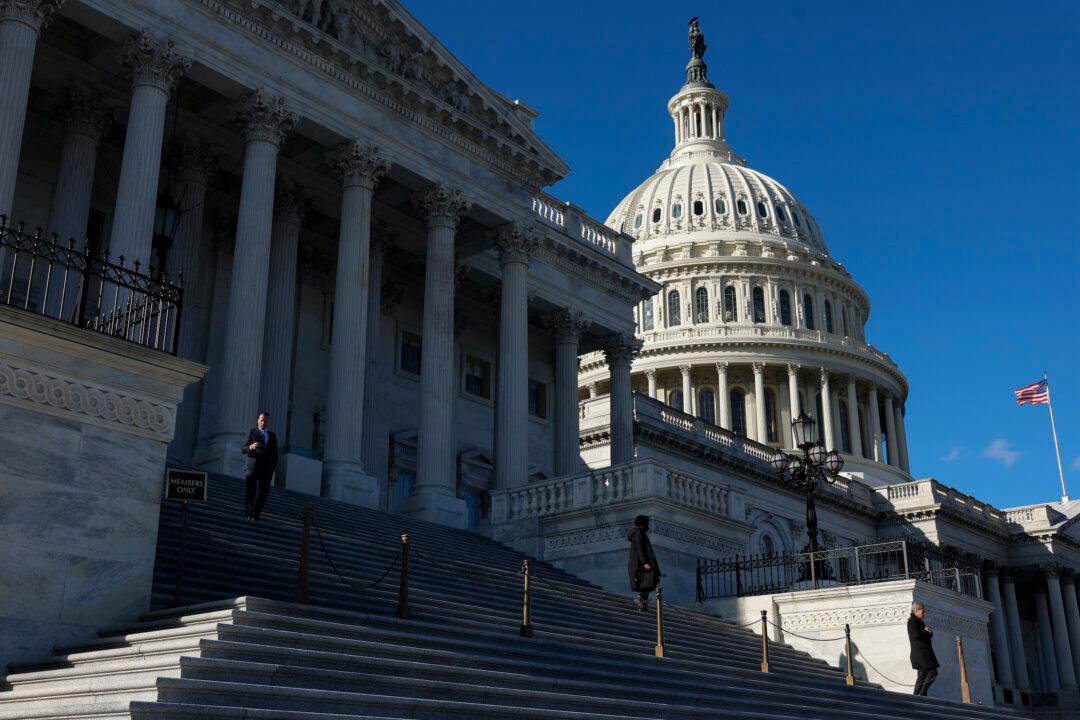Ten House Republicans have backed a lawsuit that aims to prevent implementation of the $1.7 trillion omnibus spending bill passed in December by striking down the congressional practice of proxy voting.
In an April 11 amicus brief obtained by The Epoch Times, the lawmakers supported Texas Attorney General Ken Paxton’s motion for a preliminary injunction to prevent the application of the Consolidated Appropriations Act of 2023, which passed the House on Dec. 23 largely due to proxy voting, as a majority of the chamber was absent.





